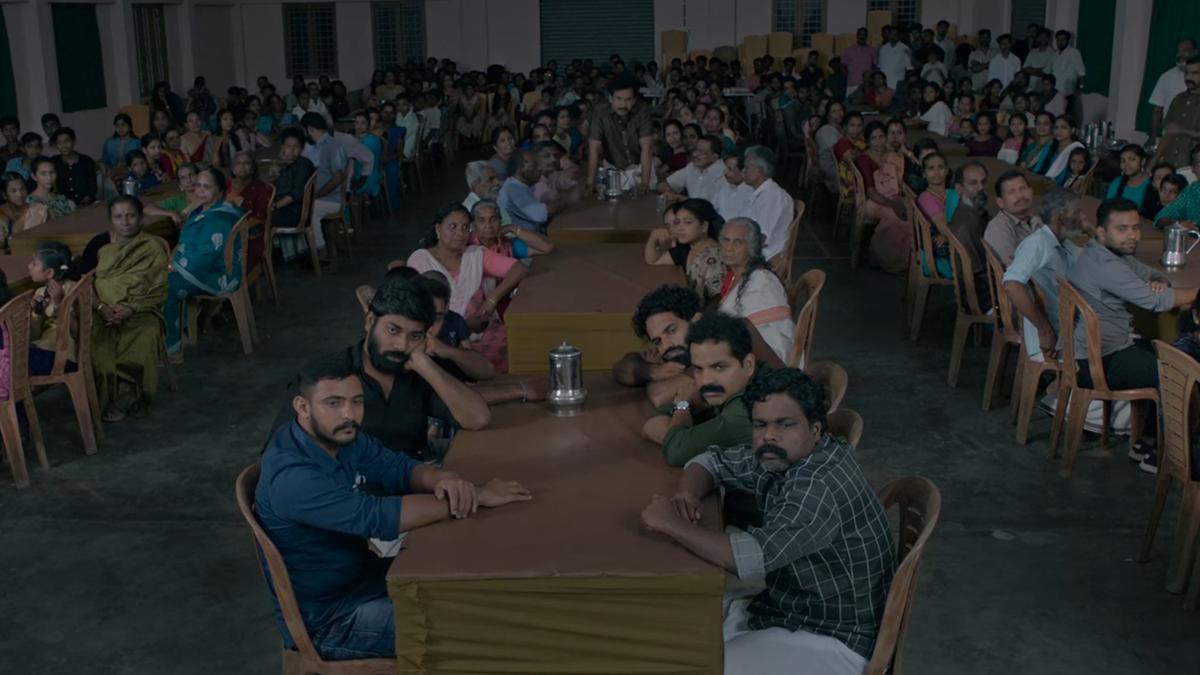
IFFK 2023: Don Palathara’s Family clinically uncovers the hidden dark spots in an idyllic community
The Hindu
Sony, the central character in Don Palathara’s Family, being screened in the International Competition section at the 28th International Film Festival of Kerala (IFFK), would seem like a familiar person, the do-gooder who can walk into any house in a village at any time. The film provides a searing portrayal of maintaining a picture perfect idea of family.
Sony, the central character in Don Palathara’s Family, being screened in the International Competition section at the 28th International Film Festival of Kerala (IFFK), would seem like a familiar person, the do-gooder who can walk into any house in a village at any time.
He offers himself at service to everyone, from taking the lead to organise things after a death in the community, to helping out with a kid’s mathematics lessons and to offering some harsh words of advice to a boy who seems to have gone a bit astray. Some of these tasks Sony (played by Vinay Forrt) takes it upon himself, while some others invariably gets offered to him, thanks to his nature. He is a son to all of us, a nun from the community says at a particular point in the film, by when we know some uncomfortable facts about him.
Family appears partly to be a study of this character, but as the wide shots throughout the film indicate, its concerns are also wider, to include the close-knit Christian community which closes ranks further to protect, and even promote, the two-faced do-gooders in their midst. It is a community which keeps a close eye on its flock, and acts fast even when there are minor transgressions. After a failed elopement too, members of the community are at hand to offer the contacts of doctors who can “help”.
For such a community, the likes of Sony are vital cogs in the wheel that has kept rolling for years. When someone raises a small suspicion about Sony to a close friend, the system gets activated. Palathara, who co-wrote the screenplay with Sherin Catherine, captures masterfully the little things that it does, from years of practise, to ensure that all suspicions are silenced, the ones raising them are admonished and the picture is idyllic, yet again.
For those who have been following Don Palathara’s works, the social setting is familiar from his previous films like Shavam, 1956 Central Travancore, although the contexts and facets that were explored in these were quite different. He immerses us in this verdant landscape, capturing its changing moods and the way people and animals negotiate these spaces. The organic precision with which the community’s religious and social practices are represented makes for compelling viewing.
A leopard that is on the prowl, and its rumoured sightings and preying, adds to the intrigue, also throwing open possible parallels to the predators in human form in the community.
Even as one savours the minimalism of the proceedings, and the quiet, effective buildup before revealing the film’s true intentions, one is also left with the wish for something more to chew on. Yet, even accounting for this, what Family provides is a searing portrayal of what it takes to maintain that picture perfect idea of community, and family.











